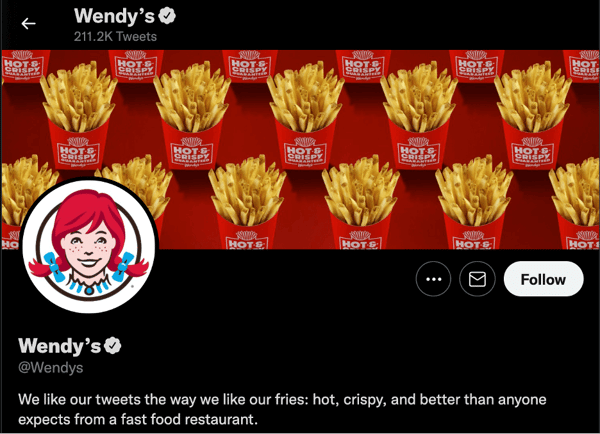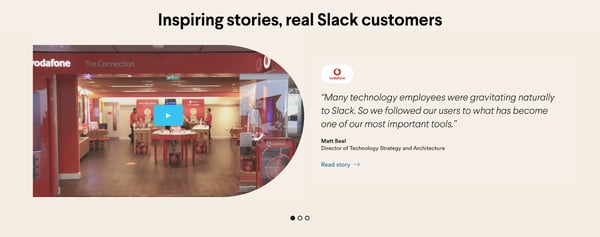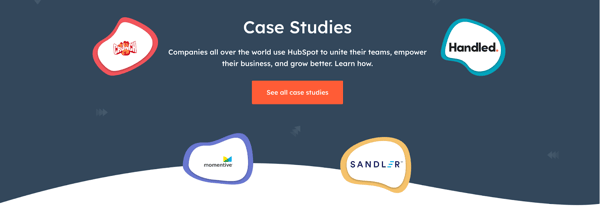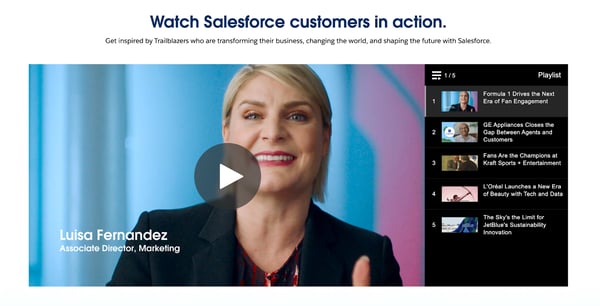
In a competitive business landscape, you have to find effective strategies that give you an edge over your competitors. And that's where social proof comes into play.
Social proof is the concept of relying on the actions and opinions of others to determine what is correct or appropriate in a given situation. In the context of marketing, social proof refers to using evidence of social validation, such as testimonials, online reviews, and endorsements, to build trust and credibility with your target audience.
Did you know that 92% of consumers trust recommendations from friends and family over all other forms of advertising?
In this article, we'll delve into eight practical and insightful ways you can harness the power of social proof to take your marketing game to the next level.
Social proof is the idea that if many people do something or endorse a product or service, it must be valuable or trustworthy. It comes in various forms, such as customer reviews, testimonials, ratings, social media followers, or celebrity endorsements.
Implementing social proof in marketing builds trust, credibility, and influence. It serves as a powerful tool to validate and reinforce the value of a brand, product, or service, ultimately increasing conversions and enhancing the overall perception of a business.
For example, let's say you're on the lookout for project management software. You come across two options. One has thousands of positive reviews, with users praising its intuitive interface and collaboration features. The other, however, has comparatively fewer reviews and a slightly lower average rating.
In this scenario, the abundance of positive reviews serves as social proof. Seeing that many businesses and teams have chosen one software and shared their positive experiences makes you more likely to opt for it over the other. The collective feedback and endorsement from real users influence your decision, underscoring the significance of social proof in shaping our software choices.
Social proof holds tremendous significance for marketers because it plays a pivotal role in shaping consumer behavior and purchase decisions. In an era where trust and authenticity are paramount, social proof establishes credibility and influences potential customers.
Trends indicate that consumers rely heavily on social proof when making choices. They seek validation from their peers, experts, and online communities to ensure they’re making informed decisions. Testimonials, customer reviews, ratings, and social media endorsements have become key indicators of a brand's reliability and quality.
The impact of social proof on the social selling and social commerce landscape has been profound. With the rise of social media platforms and online marketplaces, consumers can easily access and share their experiences about products and services. As a result, social proof has become a driving force in driving sales and customer engagement.
Marketers recognize this shift and have incorporated social proof strategies into their marketing efforts. They turn to customer testimonials, influencer collaborations, and UGC to establish social validation. By showcasing positive experiences and recommendations, marketers enhance their brand's reputation and attract a wider audience.
Furthermore, social proof has transformed the purchasing journey. Consumers now actively seek out reviews, ratings, and recommendations before making a purchase. They value the experiences of others and are more likely to trust a brand that has a strong social proof presence.
From customer reviews and testimonials to social media and expert endorsements, a variety of social proof strategies can enhance your brand and product. Let’s go over the eight types of social proof you need to incorporate into your marketing.
Customer testimonials are an evergreen form of social proof. They’re endorsements from satisfied customers that authenticate a product's quality, credibility, and value. Testimonials are crucial in building trust, so make sure you know how to collect and showcase them effectively.
To collect and showcase testimonials effectively:
Influencers with a significant following in specific niches or industries can help promote your product or service to their engaged audience.
Influencers build strong relationships with their followers, making their endorsements valuable. Their unique voice and storytelling create engaging, authentic content that resonates with their audience.
To find and work with influencers, conduct thorough research to identify the ones with expertise and influence in your industry or niche. Engage with them genuinely by following, sharing their content, and commenting on their posts to establish a connection.
Clearly define your goals, objectives, and expectations for influencer marketing, including deliverables and compensation, if applicable, to ensure a mutually beneficial partnership.
Some of the most successful examples of influencer endorsements include fashion brand Daniel Wellington collaborating with influencers on Instagram, Microsoft, and LinkedIn for thought leadership content.

Source: WYLD
Another example is Wendy's engaging with Twitter users for funny, relatable campaigns.

Source: RivalIQ
Case studies are a compelling form of social proof in marketing that showcase real-life customer success stories and highlight the specific results and benefits they’ve gotten from using a particular product or service.
To create persuasive case studies, select customers who have seen significant results and can articulate their experience effectively. The case study structure should include the customer's initial challenge or problem, the solution provided by the product or service, and the subsequent measurable results.
Incorporate visuals like charts, graphs, and before-and-after images to show the customer's journey and enhance the impact of the case study. Include direct quotes and testimonials from the customer to add authenticity and provide narratives that resonate with potential customers.
Unbounce, a landing page platform, created a detailed case study explaining how one of its customers significantly improved its conversion rate by using its landing page builder.
The case study highlighted the specific strategies, A/B tests, and the remarkable conversion rate increase. Unbounce brought out the practical benefits of its platform through this case study, which increased trust and conversions from leads seeking similar results.

Source: Unbounce
Utilize social media monitoring tools to stay updated on customer feedback and sentiments. Actively engage with users who mention your brand and address their queries and concerns as soon as possible. Identify brand advocates who consistently engage positively with your brand and use their influence to spread positive word-of-mouth.
Positive UGC is a powerful asset for social proof, and monitoring and distributing UGC content is crucial to creating social proof. Encourage customers to create and share content featuring your brands, such as reviews, testimonials, images, and videos.
Reshare this UGC on your official channels to amplify positive experiences. Create branded hashtags and encourage customers to use them so you can easily curate and showcase UGC for increased visibility.
Collaborating with relevant influencers who have a strong following in your target market can also significantly lift your brand's credibility. Their endorsements and mentions on social media carry weight with their audience.
Social media followers and engagement demonstrate the credibility and interest people have in a brand, indicating its popularity and trust. Implement strategies to grow your presence on social platforms, using followers and engagement as social proof.
Consistently posting valuable content, collaborating with influencers, cross-promoting social accounts, and organizing contests and giveaways are all tried and true, effective approaches.
Social media management tools help you manage and engage with your audience at scale. Take advantage of them to schedule posts, monitor mentions and conversations, and analyze social media performance.
You can display your social media metrics like follower count, engagement rate, reach, and impressions on your website, landing pages, or marketing materials.
Sharing social media dashboards exhibits growth. Positive trends serve as tangible evidence of social proof, building trust with potential customers and validating the effectiveness of social media marketing strategies.
User reviews significantly affect consumer decision-making. Eighty-seven percent of consumers read online reviews before making a purchase, and 92% trust recommendations from peers. Ignoring the impact of reviews is not an option.
Positive reviews build trust and increase the likelihood of conversions. Conversely, businesses with no reviews face hesitance from 92% of consumers.
To collect and manage user reviews effectively, encourage your customers to leave feedback on platforms like Google Business, Facebook, and industry-specific review sites. Follow-up emails, convenient review submission processes, and compelling incentives for all boost review generation. Review management tools make the process of getting more reviews and monitoring across multiple platforms much easier.
Respond to your reviews to demonstrate a commitment to customer satisfaction. Acknowledge and thank the customers who write positive reviews promptly to show appreciation. Negative reviews provide an opportunity to address concerns publicly, offer solutions, and turn bad into good.
User reviews also provide valuable feedback to improve products or services. Monitoring and analyzing reviews can uncover insights and help identify areas for enhancement.
Displaying trust seals and certification symbols on websites assures customers of adherence to industry standards. They mitigate concerns regarding privacy and authenticity.
Types of trust seals include SSL certificates, PCI-DSS compliance, and industry-specific regulations. To get them, you have to meet specific criteria and undergo assessments or verifications by certification authorities.
To showcase trust seals effectively, businesses should prominently display them on websites, providing clear information about their purpose. Trust seals indicate a commitment to customer trust, enhancing reputation and credibility and differentiating businesses from competitors.
Trust seals assure customers of information protection and compliance. They provide reassurance, influence purchasing decisions, and foster long-term customer relationships.
Incorporating statistics and data-backed resources in your marketing strategy significantly boosts your brand's credibility and trustworthiness. They provide objective evidence that adds weight and persuasiveness to your messages. Reliable and relevant statistics connect with your audience on a logical level, positioning your brand as knowledgeable and trustworthy.
Finding credible statistics and data requires thorough research from reputable sources such as government publications, industry reports, or renowned research organizations. Verify the credibility and methodology behind the data to ensure accuracy.
Once you have reliable data, strategically incorporate it into your marketing materials. Infographics, case studies, blog posts, and social media content are all effective formats.
Ensure that your social proof comes from reputable sources. This includes customer reviews, testimonials, industry experts, or well-known publications. Legit sources add cred to your brand and increase the trustworthiness of the social proof.
Emphasize the number of satisfied customers who have benefited from your product or service. Highlighting large numbers creates a sense of popularity and reliability, reinforcing the positive impact of your brand.
Include visual elements such as images, videos, or infographics to make your social proof more engaging and memorable. Visuals capture attention, convey emotions, and enhance the overall impact of your message.
Tailor the social proof to resonate with your target audience. Showcase testimonials or reviews from customers who match your target demographic or share similar pain points. Personalization adds relevance and strengthens the connection between potential customers and your brand.
Ensure that your social proof is easily accessible and prominently displayed on your website, landing pages, or product pages. Make it effortless for visitors to find and explore testimonials, case studies, or user reviews.
Keep your social proof up to date to reflect current experiences and opinions. Regularly collect new testimonials and refresh your content to show ongoing positive customer experiences. Outdated or irrelevant social proof may raise doubts or diminish its impact.
Authenticity is key to effective social proof. Avoid using overly promotional or exaggerated language. Genuine, unbiased customer feedback and experiences resonate with potential customers. Transparency and honesty are crucial in establishing a genuine connection with your audience.

Source: Slack
Slack uses social proof by showcasing testimonials from well-known companies like Vodafone, Airbnb, Shopify, and Target, highlighting how these industry leaders rely on Slack to improve their team communication and productivity. Featuring testimonials from reputable brands establishes trust among potential customers, showing that Slack is trusted and endorsed by successful global businesses.

Source: HubSpot
HubSpot takes advantage of social proof through in-depth case studies on its website to exhibit how its platform helps businesses achieve significant results and growth. These case studies include detailed metrics like increased website traffic, lead generation, and revenue growth to provide tangible evidence of the impact of HubSpot's services. By presenting real-world success stories, HubSpot shows off the effectiveness of its platform and builds confidence among prospective customers.

Source: Salesforce
Salesforce incorporates social proof through customer success stories and industry-specific testimonials. They talk about how their platform has transformed businesses across various sectors, including retail, healthcare, and finance. This social proof reassures potential customers that Salesforce is a trusted solution with a proven track record.
Social proof is a vital element in marketing that affects your business's success. Remember to use credible sources, highlight positive user experiences, display visuals, personalize the social proof, and make it easily accessible. Regularly update your social proof to ensure authenticity and relevance.
The power of social proof lies in its ability to overcome the skepticism of your brand. It resonates with your audience and influences purchasing decisions. Incorporating customer testimonials, influencer endorsements, user reviews, and data-backed resources wins trust, credibility, and conversions.
Listen and learn. See how social listening helps you understand your audience, monitor brand mentions, and stay ahead of trends in real time.
Jagdish is a seasoned Content Marketer with a profound understanding of digital marketing and social media management. He enjoys shooting hoops, cycling, and cooking vegan recipes in his spare time.
There’s a right and a wrong way to do everything, including social media.
 by Nicola Cronin
by Nicola Cronin
The health and fitness industry is extremely competitive.
 by Jeff Badal
by Jeff Badal
Given the choice between a higher-priced product with quality reviews and a lower-priced...
 by Krunal Vaghasiya
by Krunal Vaghasiya
There’s a right and a wrong way to do everything, including social media.
 by Nicola Cronin
by Nicola Cronin
The health and fitness industry is extremely competitive.
 by Jeff Badal
by Jeff Badal


